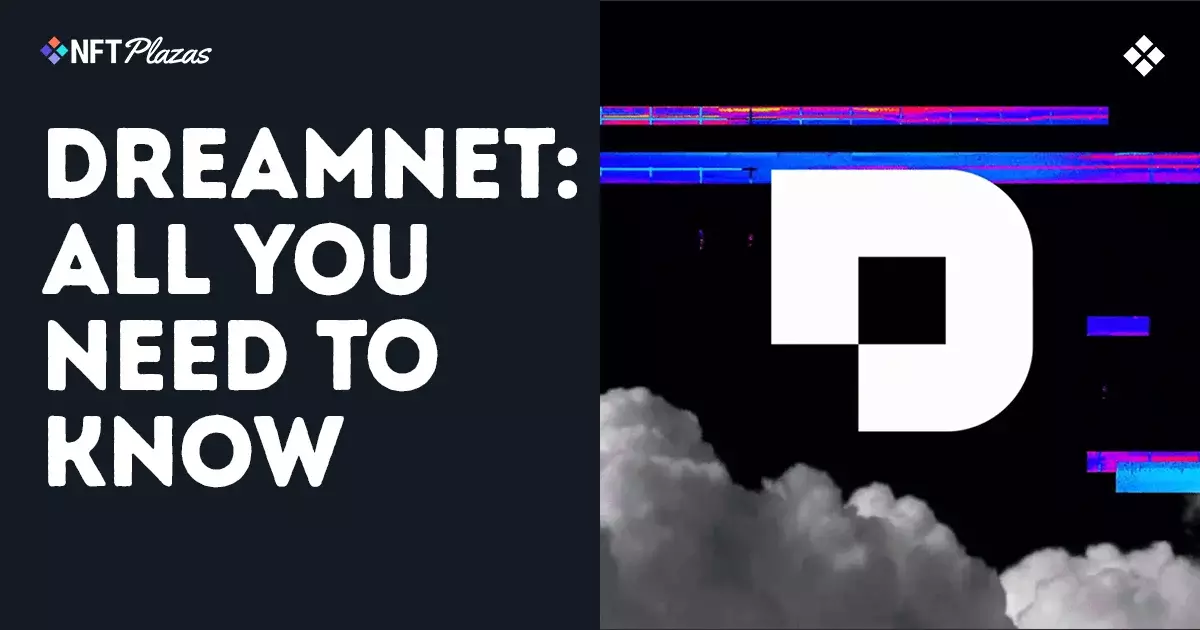In an era where artificial intelligence is often dismissed as a threat to human ingenuity, DreamNet emerges as a provocative counterpoint—challenging the conventional narrative that automation diminishes originality. This ambitious project, backed by the creators of the renowned Doodles NFT collection, seeks to redefine the future of storytelling and digital content creation. Unlike the widespread skepticism surrounding AI’s role, DreamNet positions human creativity at the core, leveraging blockchain technology to ensure fair recompense and genuine recognition for creators.
What makes DreamNet particularly compelling is its core philosophy: fostering a symbiotic relationship between human input and AI assistance, rather than replacing human imagination. This pragmatic integration promises to democratize narrative development, empowering everyday enthusiasts rather than elite studios. If successful, this approach could fundamentally shift how we conceive of intellectual property, community ownership, and content innovation in the digital age.
Decentralization as a Catalyst for Authentic Creativity
The innovation of DreamNet hinges on its decentralized architecture. By utilizing blockchain—initially on Solana and soon on Base—it promises an unprecedented level of transparency, security, and community control. The “WorldState” ledger not only tracks contributions but also anchors trust, ensuring that creators are rewarded proportionally to their audience’s reception. This is a deliberate challenge to the existing entertainment monopolies, which often gatekeep creative output and disproportionately reward a select few.
The choice to involve the community as owners and decision-makers introduces a new dynamic to digital storytelling. Instead of relying on the traditional top-down model, DreamNet offers a platform where the collective voice influences narrative evolution, distribution, and monetization. Such a radical democratization could inspire a cultural shift, where fans and creators collaborate equally—reshaping the power structure of IP development.
Furthermore, the incentive mechanisms—embodied by the $DOOD token and supporting assets—are tailored to align individual interests with the collective good. The promise that contributors can earn tangible rewards for their ideas suggests a sustainable model that values genuine effort over viral luck or corporate favoritism. This, in itself, could serve as a blueprint to reform the broader entertainment and creative industries.
Transformative Potential and Practical Concerns
While DreamNet’s vision is undeniably enticing, its potential to deliver on these lofty promises remains to be seen. The project pitches itself as a game-changer in storytelling, yet it faces notable hurdles—chiefly, the technological and social adoption. The initial closed beta exclusive to Doodles holders hints at a protective, insular start, which could hinder broader engagement if not managed carefully.
Moreover, the reliance on AI as a creative partner invites scrutiny. Will AI-generated narratives truly reflect human nuance, or will they become bland, formulaic echoes of prior output? The project’s success depends on balancing AI assistance with authentic human originality, which is anything but guaranteed. If the AI becomes a crutch rather than a collaborator, DreamNet may risk diluting the very creativity it seeks to nurture.
Ownership and reward mechanics introduce complex questions about fairness and equity. As contributions grow and narratives expand, how will the system prevent exploitation or dominance by a few? The possibility that early adopters gain disproportionate benefits could generate skepticism about the platform’s egalitarian promises. Ensuring transparency and equitable distribution will be crucial if DreamNet hopes to maintain trust and momentum over time.
Lastly, broader industry acceptance remains uncertain. Major players in entertainment are notoriously resistant to decentralized models, preferring familiar hierarchies. As much as DreamNet champions democratization, its real-world impact hinges on interoperability with existing IP frameworks, legal safeguards, and cultural acceptance. Without widespread endorsement, it risks remaining an innovative but niche experiment.
A Bold Step Toward Future-Proofing Creativity
Ultimately, DreamNet embodies a provocative vision—one that pushes against the grain of traditional entertainment paradigms. Its emphasis on fairness, community control, and human-AI collaboration underscores a belief that authenticity doesn’t have to be sacrificed in the pursuit of technological progress. Instead, if managed judiciously, it could revitalize storytelling, making it more inclusive, responsive, and resilient against corporate centralization.
Yet, this faith in innovation must be tempered with skepticism. The platform’s long-term viability will depend on its capacity to foster genuine engagement, prevent exploitation, and integrate seamlessly into the broader digital ecosystem. If it succeeds, it might not just transform how stories are told but also challenge entrenched industries to rethink their role in nurturing human creativity. Such disruption, in its best form, could herald a new era—one where connectivity, decentralization, and ingenuity coalesce to produce richer, more diverse narratives for generations to come.

